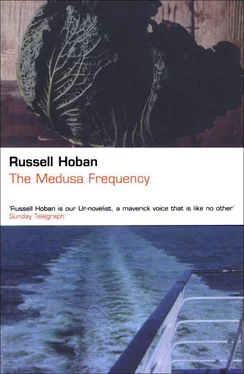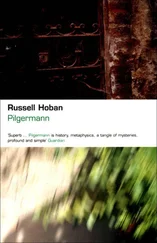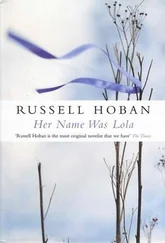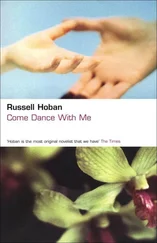‘Were they lovers before she met you?’
‘I don’t know,’ said the brain. ’I’ve told you there isn’t a whole story. I don’t know what’s between them in that space between the making of the lyre and my finding of Eurydice by the river. I think of the buzzingness, the swarmingness, the manyness of bees singing the honey of possibility. I see Eurydice sitting among the skeps under the apple trees listening to her bees. She was afraid that our story would find us but she was always listening for it.’
‘How can bees tell a story?’
‘The bees don’t tell a story but in the manyness of their singing there sometimes comes a story to the one who listens.’
‘The story that Aristaeus was scratching on potsherds?’
‘Broken pieces want to come together,’ said the brain, ‘they want to contain something. I see Aristaeus with his broken bits of fired clay, each one only big enough for a word or two. ORPHEUS, he has written on one piece, THE TORTOISE on another. As soon as these words are put next to each other there want to be more words: THE ROAD; THE RIVER; EURYDICE. Or perhaps EURYDICE is the first word and in the empty space next to it there appears THE TORTOISE. Or first THE TORTOISE, yes of course, THE TORTOISE first because it is the centre of the universe, because it is the world-child; THE TORTOISE first and then EURYDICE who is again the world-child-tortoise, EURYDICE whose loss is the judgment, whose loss is the reckoning and the punishment.
‘The judgment, the reckoning, and the punishment.’
‘Yes,’ said the brain. ‘Eurydice is all that one wants to be faithful to and cannot, and the loss of her is the punishment.’
‘How did you lose her?’
‘I lost her when I stopped perceiving her.’
‘I meant how did you lose her physically?’
‘She went off to live with Aristaeus.’
‘She wasn’t bitten by a snake, she didn’t go to underworld?’
‘Not in this telling of the story; she simply left me and moved in with Aristaeus.’
‘Nothing more dramatic than that?’
‘Real life is all there is,’ said the brain.
‘She left you because of your infidelities?’
‘I think it was the story that finally did it. When there was love and happiness there was no story, what there was could not be contained by words. With the death of love came the story and the story found words for it.’
‘What happened?’
‘You remember that she didn’t want us to speak our names,’ said the brain. ‘We’d made up names for ourselves and those were the names we were known by. Then one night we came to a place and people said to me, “Sing about Orpheus and Eurydice.”
‘“Who are Orpheus and Eurydice?” I said.
‘“Lovers in a story,” they said. “Eurydice died of a snake bite and Orpheus went to underworld to bring her back but he turned around to look at her too soon and he lost her.”
‘“More likely it was someone else he turned around to look at,” said Eurydice, “and the only snake was the one between his legs.”
‘“I don’t know that story,” I said. I sang about the kingfisher and the river and blood came out of my nose and mouth and I fell down and had convulsions and when I came back to myself they still wanted me to sing about Eurydice and me. We went away from that place and our names filled our minds, it was impossible not to speak them.
‘“Orpheus,” she said to me sadly, “now the story has found us, now we have become story and I must leave you.”
‘“Why?” I said. “Why must you leave me?”
‘“Because Eurydice is the one who cannot stay,” she said. “Eurydice is the one who is lost to you, the one you will seek for ever and never find again. Eurydice is the one of whom you will say, ‘If only I had known what she was to me!’”
‘“If only I had known what you were to me!” I said.
‘“You did know,” she said. “Orpheus always knows and he always does what he does and Eurydice becomes lost to him. That’s the story of us and there’s nothing to be done about it.”
‘“Eurydice!” I said. “I’ll change and the story will change. I’ll be faithful to you and you’ll stay with me because you are all the world to me.”
‘“Underworld as well,” she said, “but I can’t stay.”
‘“Eurydice, Eurydice!” I said. “What shall I do without you?”
‘“You will sing better than ever,” she said. “Art is a celebration of loss, of beauty passing, passing, not to be held. Now that I’m lost you will perceive me fully and you will find me in your song; now that underworld is closed to you the memory of the good dark will be with you always in your song. Now you are empty like the tortoise-shell, like the world-child betrayed, and your song will be filled with what is lost to you.’”
‘And did you sing better?’ I said to the brain of Orpheus.
‘Yes,’ said the brain. ‘Day followed night and night followed day and everything was empty, there was no world in the world; the river and the sunlight, the kingfisher and the dragonfly, all were grey. I sat in a little room and the shadows moved on the walls. There was an earring that had fallen on the floor; sometimes it lay in sunlight, sometimes in shadow. In the evenings I went out with my lyre and I sang world and underworld and my songs were deeper and stronger than ever before. No longer did I bleed from the nose and mouth, there were no more convulsions, the songs I sang in my misery were easy and the beauty of them broke the heart.’
‘And what then?’
‘What do you mean, “And what then?” What more do you want?’
‘I want the whole story that I took on me to finish, I want the end of it. Did you just go on singing beautiful songs or what?’
‘Little by little the beauty went out of them and fewer people wanted to hear them. I ended up singing for coins in taverns as I had done before I became the Orpheus of the stories.’
‘How did you die?’
‘In a drunken brawl.’
‘What about the Thracian women? Didn’t the Thracian women kill you?’
‘In a manner of speaking. But they did it one at a time.’
‘And how did your head get separated from your body?’
‘People are strange,’ said the brain, ‘they’ll take a head that was useless to its owner and expect it to answer all their questions. Mine enjoyed a brief vogue as an oracle until somebody kicked it into the sea and the next mode of the idea of me. But as far as I’m concerned the personal story of me came to an end when Eurydice moved in with Aristaeus and both of us were swallowed up by the commonplace.’
‘But you sang better than ever before.’
‘What remained was less than what was lost,’ said the brain.
‘What remained became the endlessly voyaging sorrow and astonishment from which I write in those brief moments when I can write,’ I said.
‘You must do the best you can with what you’ve got,’ said the brain. ‘Eurydice is lost to you but Medusa trusts you with the idea of her.’
I went back through my pages to the Johan de Witthuis and the Island Tamaraca:
Out of the pinky dawn water, naked and shining in the dawn, rose Luise, quivering like a mirage between the beach and the island seen across the water. Quivering, shimmering, her body becoming, becoming, becoming a face loosely grinning, with hissing snakes writhing round it in the shining dawn. Around me ceased the sounds of the day; the stone of me cracked and I came out of myself quite clean, like a snake out of an egg, nothing obscuring my sight or my hearing. The Gorgon’s head, the face of Medusa, shimmered luminous in a silence that crackled with its brilliance. Her mouth was moving.
What? I said. What are you saying?
Читать дальше












